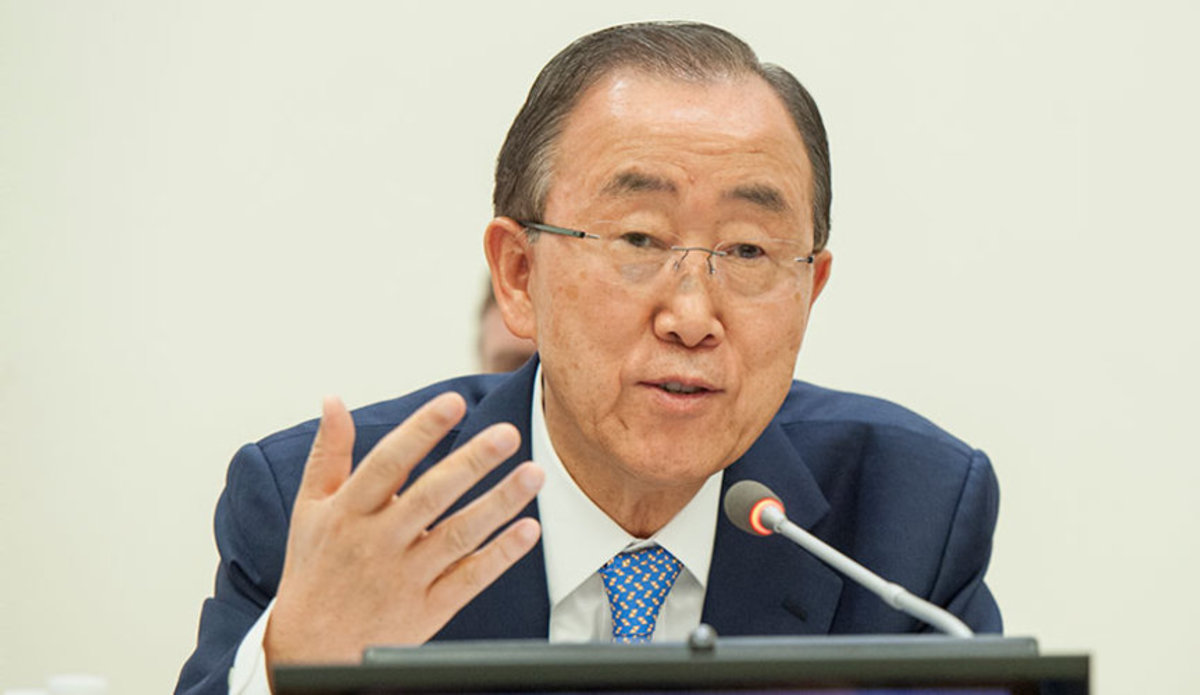THE SECRETARY-GENERAL -- REMARKS AT LEADERS’ SUMMIT ON PEACEKEEPING New York, 28 September 2015
[as delivered]
I would like to thank President Obama for his initiative by convening all of us, and I thank you for your participation and leadership.
I am also grateful to Ambassador Power for her tireless efforts in organizing and preparing this important gathering.
I also thank the co-chairs, including those who hosted regional meetings that provided critical momentum.
We are here together to strengthen United Nations peacekeeping in concrete and meaningful ways.
Peacekeeping operations save lives, protect people and help countries overcome conflict.
Being a peacekeeper is a noble calling. We must always remember the brave men and women who paid the ultimate sacrifice in the name of peace.
Today, the demand for peacekeeping has never been greater.
More than 120 countries currently contribute over 125,000 troops, police and civilian personnel.
Our missions operate 350 medical clinics, 167 helicopters, 70 aircraft and 7 ships and more than 13,000 vehicles.
They disarm, demobilize and reintegrate ex-combatants; strengthen rule of law and security institutions; and promote human rights.
These numbers show peacekeeping’s value -- but are also a sign of troubled times.
The situations into which peacekeepers are deployed have never been more challenging, as tasks multiply and we face extremists, criminal groups and others who show no regard for international humanitarian or human rights law.
UN peacekeepers are sheltering 200,000 civilians in South Sudan. United Nations missions have never been designed to accommodate such large number of refugees [displaced people]. We are monitoring a fragile peace agreement in Mali and working to prevent another outbreak of widespread violence in the Central African Republic.
In Lebanon, peacekeepers are a source of reassurance as the crisis deepens next door in Syria.
Our shared test is to make sure that peacekeeping operations are equal to these and future tasks.
Over the past year, we have embarked on an effort to reinvigorate UN peace operations.
A high-level independent panel has proposed a set of responses. I recently issued my own report setting out how I intend to take the panel’s recommendations forward.
Such windows for comprehensive reform are rare -- this is only the first time in fifteen years. It is essential that we act urgently, boldly and collectively.
I would like to highlight four main needs.
First, predictable and effective military capabilities -- especially critical enablers that have a high degree of readiness and meet UN standards.
Second, qualified police personnel, as well as experts in the justice and corrections sectors. We need more female police officers, and we would most welcome if you send formed police units.
Third, as we fill today’s gaps, we need a standby reserve for tomorrow. I urge you to register the specific pledges you make today in our new Peacekeeping Capability Readiness System.
Fourth, we must prevent and punish sexual exploitation and abuse. Those who serve in peace operations must never prey on the people they are meant to protect. I count on all troop- and police-contributing countries to act swiftly and decisively to hold perpetrators to account.
Beyond concrete capabilities, our operations need solid political backing.
We must explore every possible avenue to prevent conflicts before they begin. We must promote the full participation of women in advancing peace and security. And we in the Secretariat must do our part by building on all we have done to streamline our systems and improve the way we support our missions.
The presence of so many leaders today, and the new pledges you are about to announce, represent an unprecedented collective commitment to strengthen UN peacekeeping. You represent longstanding and new contributors, as well as all regions of the world. You are reaffirming – and indeed reinforcing -- the truly universal nature of UN peacekeeping.
I thank you for your leadership.
 UN
UN United Nations Peacekeeping
United Nations Peacekeeping





